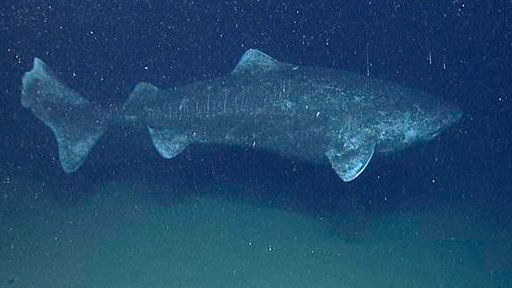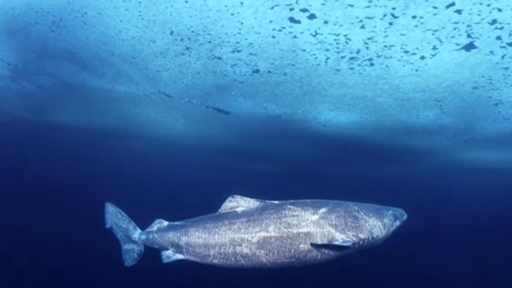
Scientists discovered that Greenland sharks can live up to 400 years (or more!) and don’t reproduce until at least 150. The previous record for oldest vertebrate, the bowhead whale, was 211 years.
Researchers utilized carbon dating methods on a variety of Greenland sharks and concluded that one of the females was four centuries old.

Marine biologist John Steffenson of the University of Denmark had previously learned that the mammoth 20-ft species only grows about 1 centimeter per year from a study conducted in the 1930s. Knowing this, it seemed likely that the sharks would require decades — perhaps centuries — to grow to their adult size.
He knew he was on to something. He launched his research by collecting a bone fragment from a specimen caught incidentally by a fishing vessel to see if he could age the animal by counting growth rings.
He found no such rings, and decided to consult radiocarbon dating expert Jan Heinemeir for advice. Heinemeir encouraged the researcher to measure carbon in a shark’s eye lenses instead.

Steffenson and his graduate student Julius Nielson spent several years gathering tissue samples from sharks that were caught accidentally by trawlers.
Nielson explained, “The Greenland shark’s eye lens is composed of a specialized material – and it contains proteins that are metabolically inert, which means after the proteins have been synthesized in the body, they are not renewed any more. So we can isolate the tissue that formed when the shark was a pup, and [conduct] radiocarbon dating.”

The carbon type they measured was carbon-14, an isotope that saturated water sources after nuclear bomb testing in the 1950s. By measuring the exact amount of carbon-14 in the lenses, researchers could determine the exact age and growth rate of a sample of sharks.
By correlating radiocarbon dates with overall shark length, the two were able to determine the approximate age of the animals. The oldest in the sample was 392 (plus or minus 120 years)!
Scientists suspect that their longevity is a result of both good genes and a very cold environment. Sluggish metabolic rates, such as those found in extremely cold environments, often equate to an increase in longevity.
See more of this shark up-close in the video below:




